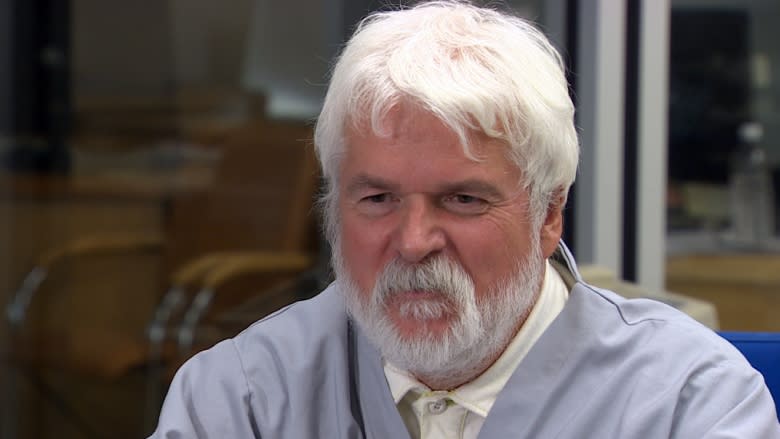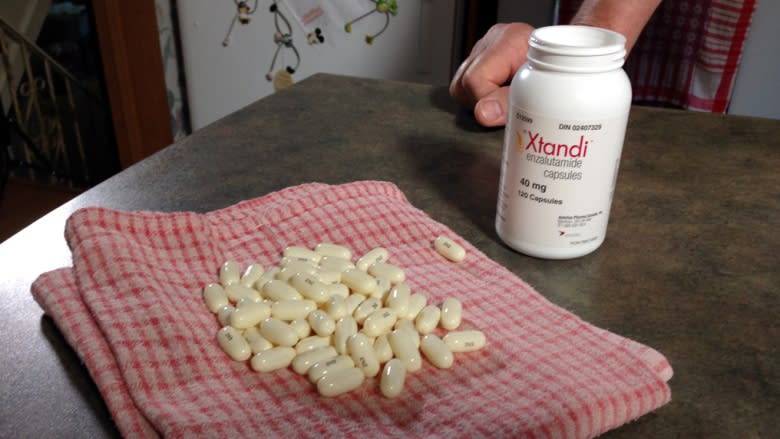Biolyse Pharma stymied in effort to make cheaper version of pricey prostate cancer drug
A small Canadian company has waded into a U.S. drug price controversy by offering to make an expensive prostate cancer drug for a fraction of the price.
Right now Xtandi costs U.S. patients as much as $129,000 US a year, or about $90 per pill. St. Catharines, Ont.-based Biolyse Pharma says it can make the drug for $3 a pill, or $4,400 per year, but has so far been unable to get U.S. health authorities to override the existing patent.
Biolyse Pharma initially made the offer to make a cheaper version of Xtandi (enzalutamide) to the U.S. government in April.
The issue resurfaced last week after pharmaceutical giant Pfizer announced it will pay $14 billion US to buy Medivation, the makers of the drug, primarily on the strength of Xtandi.
Medivation, along with Astellas Pharma Inc.of Japan, which owns the drug rights outside the U.S., licensed the patents for Xtandi from the University of California, Los Angeles, where the drug was discovered. Much of the early research and development was publicly funded, and that means U.S. federal agencies have a legal right to override the patents under certain circumstances.
Used by a minority of prostate cancer patients
Enzalutamide is commonly prescribed to men who no longer respond to traditional prostate cancer treatments and prevents the hormone testosterone from fuelling the growth of cancer.
"It's [for] men who have demonstrated metastasis or spread," said Dr. Antonio Finelli, head of the urology division at Princess Margaret Cancer Centre in Toronto.
Of the overall population of men with prostate cancer, only a minority fall into that category.
"It's a drug that definitely has had a significant impact on men who, unfortunately, develop this late-stage prostate cancer," he said.
'A more reasonable price'
The drug costs $20.12 US a tablet in Canada and $88.48 in the United States, and patients normally need four tablets a day, according to Knowledge Ecology International, a non-profit pharmaceutical industry watchdog in Washington, D.C., that is lobbying to get the price of Xtandi lowered.
Knowledge Ecology International approached Biolyse earlier this year and asked whether the company could make a more affordable version of the drug for U.S. Medicare patients. Biolyse, which had worked with Knowledge International on affordable access to another cancer drug, paclitaxel, did the math and concluded that it could produce a generic version of Xtandi for just $3 a tablet.
"We looked at it and came to the conclusion that it can be offered at a much more reasonable price," said Claude Mercure, a manager at Biolyse.
But Biolyse can't move forward without the approval of the U.S. National Institutes of Health, which would have to override some of the licensing rights that allow Medivation to set the price.
The NIH has so far said it will not intervene in the pricing of Xtandi as long as the drug remains widely available.
Knowledge Ecology International said it will challenge that decision after the U.S. presidential election in November, arguing that the NIH would be justified in overriding the drugmaker's patent rights because it, along with the publicly funded UCLA, sponsored much of the early research and development of the drug.
"Pre-clinical research was pretty much all financed by the federal government and even some of the early clinical trials were paid for by the U.S. government," said the group's director, James Love.
Members of Congress call for price drop
Biolyse has been approached by other countries interested in getting a cheaper version of the drug manufactured for their markets, and Mercure is confident that his company has the capacity to do so and still make a profit. He said he can't figure out why Xtandi is so expensive.
Xtandi's price tag has also drawn fire from several members of the U.S. Congress, including former Democratic presidential candidate Bernie Sanders.
"If the administration wants to slow the spike in drug prices, an NIH hearing now on Xtandi is one place to start," said Representative Lloyd Doggett, a Democrat from Texas, in April.
Even if the NIH were to allow Biolyse to proceed, the price reduction would not immediately affect the price of the drug in Canada, where Astellas owns the licensing rights.
- EpiPen maker's cheaper version aims to quell furor in U.S.



